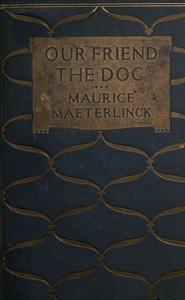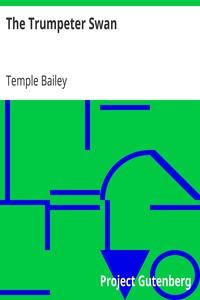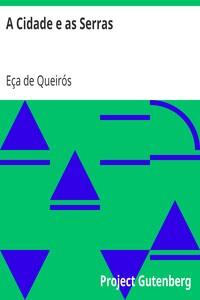|
|
Read this ebook for free! No credit card needed, absolutely nothing to pay.Words: 81388 in 11 pages
This is an ebook sharing website. You can read the uploaded ebooks for free here. No credit cards needed, nothing to pay. If you want to own a digital copy of the ebook, or want to read offline with your favorite ebook-reader, then you can choose to buy and download the ebook.

: The Works of the Right Honourable Edmund Burke Vol. 11 (of 12) by Burke Edmund - Great Britain Politics and government 1760-1820; Political science Early works to 1800@FreeBooksTue 06 Jun, 2023 e do think this process long; we lament it in every sense in which it ought to be lamented; but we lament still more that the Begums have been so long without having a just punishment inflicted upon their spoiler. We lament that Cheyt Sing has so long been a wanderer, while the man who drove him from his dominions is still unpunished. We are sorry that Nobkissin has been cheated of his money for fourteen years, without obtaining redress. These are our sympathies, my Lords; and thus we reply to this part of the charge. My Lords, there are some matters of fact in this charge of delay which I must beg your Lordships will look into. On the 19th of February, 1789, the prisoner presented a petition to your Lordships, in which he states, after many other complaints, that a great number of his witnesses were obliged to go to India, by which he has lost the benefit of their testimony, and that a great number of your Lordships' body were dead, by which he has lost the benefit of their judgment. As to the hand of God, though some members of your House may have departed this life since the commencement of this trial, yet the body always remains entire. The evidence before you is the same; and therefore there is no reason to presume that your final judgment will be affected by these afflicting dispensations of Providence. With regard to his witnesses, I must beg to remind your Lordships of one extraordinary fact. This prisoner has sent to India, and obtained, not testimonies, but testimonials to his general good behavior. He has never once applied, by commission or otherwise, to falsify any one fact that is charged upon, him,--no, my Lords, not one. Therefore that part of his petition which states the injury he has received from the Commons of Great Britain is totally false and groundless. For if he had any witnesses to examine, he would not have failed to examine them; if he had asked for a commission to receive their depositions, a commission would have been granted; if, without a commission, he had brought affidavits to facts, or regular recorded testimony, the Commons of Great Britain would never have rejected such evidence, even though they could not have cross-examined it. Another complaint is, that many of his witnesses were obliged to leave England before he could make use of their evidence. My Lords, no delay in the trial has prevented him from producing any evidence; for we were willing that any of his witnesses should be examined at any time most convenient to himself. If many persons connected with his measures are gone to India, during the course of his trial, many others have returned to England. Mr. Larkins returned. Was the prisoner willing to examine him? No: and it was nothing but downright shame, and the presumptions which he knew would be drawn against him, if he did not call this witness, which finally induced him to make use of his evidence. We examined Mr. Larkins, my Lords; we examined all the prisoner's witnesses; your Lordships have their testimony; and down to this very hour he has not put his hand upon any one whom he thought a proper and essential witness to the facts, or to any part of the cause, whose examination has been denied him; nor has he even stated that any man, if brought here, would prove such and such points. No, not one word to this effect has ever been stated by the prisoner. There is, my Lords, another case, which was noticed by my honorable fellow Manager yesterday. Mr. Belli, the confidential secretary of the prisoner, was agent and contractor for stores; and this raised a suspicion that the contracts were held by him for the prisoner's advantage. Mr. Belli was here during the whole time of the trial, and six weeks after we had closed our evidence. We had then no longer the arrangement of the order of witnesses, and he might have called whom he pleased. With the full knowledge of these circumstances, that witness did he suffer to depart for India, if he did not even encourage his departure. This, my Lords, is the kind of damage which he has suffered by the want of witnesses, through the protraction of this trial. But the great and serious evil which he complains of, as being occasioned by our delay, is of so extraordinary a nature that I must request your Lordships to examine it with extraordinary strictness and attention. In the petition before your Lordships, the prisoner asserts that he was under the necessity, through his counsel and solicitors, "of collecting and collating from the voluminous records of the Company the whole history of his public life, in order to form a complete defence to every allegation which the Honorable House of Commons had preferred against him, and that he has expended upwards of thirty thousand pounds in preparing the materials of his defence." In contradiction, then, to this charge of oppression and of an attempt to ruin his fortune, your Lordships will see that at the time when he made this charge he had not been, in fact, nor was for a long time after, one shilling out of pocket. But some other person had become security to his attorney for him. What, then, are we to think of these men of business, of these friends of Mr. Hastings, who, when he is possessed of nothing, are contented to become responsible for thirty thousand pounds, --responsible, I say, for this sum, in order to maintain this suit previous to its actual commencement, and who consequently must be so engaged for every article of expense that has followed from that time to this? Thus much we have thought it necessary to say upon this part of the recriminatory charge of delay. With respect to the delay in general, we are at present under an account to our constituents upon that subject. To them we shall give it. We shall not give any further account of it to your Lordships. The means belong to us as well as to you of removing these charges. Your Lordships may inquire upon oath, as we have done in our committee, into all the circumstances of these allegations. I hope your Lordships will do so, and will give the Commons an opportunity of attending and assisting at this most momentous and important inquiry. The next recriminatory charge made upon us by the prisoner is, that, merely to throw an odium upon him, we have brought forward a great deal of irrelevant matter, which could not be proved regularly in the course of examination at your bar, and particularly in the opening speech, which I had the honor of making on the subject. Your Lordships will remember that a most reverend prelate, who cannot be named without every mark of respect and attention, conveyed a petition to your Lordships from a gentleman concerned in one of those narratives. Upon your Lordships' table that petition still lies. For the production of this narrative we are not answerable to this House; your Lordships could not make us answerable to him; but we are answerable to our own House, we are answerable to our own honor, we are answerable to all the Commons of Great Britain for whatever we have asserted in their name. Accordingly, General Burgoyne, then a member of this Committee of Managers, and myself, went down into the House of Commons; we there restated the whole affair; we desired that an inquiry should be made into it, at the request of the parties concerned. But, my Lords, they have never asked for inquiry from that day to this. Whenever he or they who are criminated desire it, the House will give them all possible satisfaction upon the subject. A similar complaint was made to the House of Commons by the prisoner, that matters irrelevant to the charge were brought up hither. Was it not open to him, and has he had no friends in the House of Commons, to call upon the House, during the whole period of this proceeding, to examine into the particulars adduced in justification of the preamble of the charge against him, in justification of the covenants of the Company, in justification of the act of Parliament? It was in his power to do it; it is in his power still; and if it be brought before that tribunal, to which I and my fellow Managers are alone accountable, we will lay before that tribunal such matters as will sufficiently justify our mode of proceeding, and the resolution of the House of Commons. I will not, therefore, enter into the particulars any further than to say, that, if we had ever been called upon to prove the allegations which we have made, not in the nature of a charge, but as bound in duty to this Court, and in justice to ourselves, we should have been ready to enter into proof. We offered to do so, and we now repeat the offer. There was another complaint in the prisoner's petition, which did not apply to the words of the preamble, but to an allegation in the charge concerning abuses in the revenue, and the ill consequences which arose from them. I allude to those shocking transactions, which nobody can mention without horror, in Rampore and Dinagepore, during the government of Mr. Hastings, and which we attempted to bring home to him. What did he do in this case? Did he endeavor to meet these charges fairly, as he might have done? No, my Lords: what he said merely amounted to this:--"Examination into these charges would vindicate my reputation before the world; but I, who am the guardian of my own honor and my own interests, choose to avail myself of the rules and orders of this House, and I will not suffer you to enter upon that examination." My Lords, we admit, you are the interpreters of your own rules and orders. We likewise admit that our own honor may be affected by the character of the evidence which we produce to you. But, my Lords, they who withhold their defence, who suffer themselves, as they say, to be cruelly criminated by unjust accusation, and yet will not permit the evidence of their guilt or innocence to be produced, are themselves the causes of the irrelevancy of all these matters. It cannot justly be charged on us; for we have never offered any matter here which we did not declare our readiness upon the spot to prove. Your Lordships did not think fit to receive that proof. We do not now censure your Lordships for your determination: that is not the business of this day. We refer to your determination for the purpose of showing the falsehood of the imputation which the prisoner has cast upon us, of having oppressed him by delay and irrelevant matter. We refer to it in order to show that the oppression rests with himself, that it is all his own. Free books android app tbrJar TBR JAR Read Free books online gutenberg More posts by @FreeBooks
: Our Friend the Dog by Maeterlinck Maurice Alden Cecil Illustrator Teixeira De Mattos Alexander Translator - Dogs Animals-Domestic@FreeBooksTue 06 Jun, 2023

: The Story of the Great War Volume III (of 12) The War Begins Invasion of Belgium Battle of the Marne by Churchill Allen L Allen Leon Editor Miller Francis Trevelyan Editor Reynolds Francis J Francis Joseph Editor - World War 1914-1918 World War I@FreeBooksTue 06 Jun, 2023
|
Terms of Use Stock Market News! © gutenberg.org.in2025 All Rights reserved.






